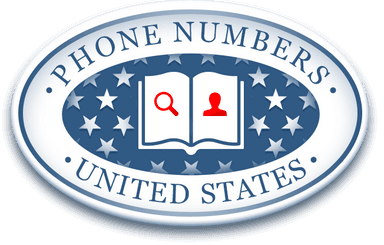How to Contact Chase Customer Service

Chase provides individual and commercial financial services to customers in the United States and globally. It is one of the big four banks in the American banking industry with over $3 trillion worth of assets under management.
Customers with a Chase bank account have access to round-the-clock support through multiple channels, including voice calls, text-based live chat, and Twitter. If these virtual channels of reaching an agent do not help, customers can schedule an in-person appointment with an advisor at the nearest branch.
How Do I Contact Chase Customer Service Via Phone
Chase customer service number is (800) 935-9935, available at the back of your Chase debit or credit card. Chase accepts operator relay calls from customers with hearing or speech impediments (call 711). Chase international customer service number is 1-713-262-3300.
Pros
- It is a fast way to resolve your complaint
- Tiered support is available
- Ease of two-way communication
- You can schedule a callback or appointment
Cons
- The wait time is lengthy (15 - 30 minutes)
- Help is only available during call center hours
- You must navigate the phone tree
The significant downsides to calling an agent are the wait time and the call center hours (7 AM to 11 PM ET). If you need help quickly, use the live chat option, which is available round-the-clock.
How Do I Message Chase Customer Service
Chase offers live chat online through its Secure Message Center. Customers who wish to chat with an agent must log in to their account to send a message. Alternatively, they may use the Chase mobile banking app available on Google Play Store and Apple Store.
Pros
- Good user interface
- Short wait time
- Available round the clock
Cons
- Tiered support is not available
- Challenging to use for non-native English speakers
- The text-based live chat makes the conversation feel impersonal. Likewise, non-native English speakers have a hard time communicating their intent over text.
How Do I Contact Chase Customer Service Via Twitter
Chase customer service is on Twitter, @ChaseSupport.
Pros
- No chatbot
- You can take your time to describe your complaint or inquiry
- The Twitter team provides a thorough response
Cons
- Slow response time
- Support is only available during specific times.
Contacting support on Twitter is an excellent way to get help. But it is comparatively slower than phone calls and sending a message through the Secure Message Center. Furthermore, support is only available during active hours, 7 AM – 11 PM ET on the five workdays, and 10 AM - 7 PM ET on Saturdays and Sundays.
Note that Chase's customer service Twitter account is verified. So, beware of persons who message you on Twitter claiming to be customer service agents. A rule of thumb is to send your complaints via direct message to the support account. Do not provide your banking or account information in a public tweet, as this exposes you to scammers and identity thieves.
Getting In-person Help At A Chase Branch
Chase customers who have had difficulty getting their issue resolved on the phone, Twitter, or secure message can schedule an in-person appointment with Chase bank.
Pros
- It is convenient
- Face to face interaction
- No waiting, a specialist will be available at the time you choose
Cons
- There is technically a waiting time
- Unsuitable for urgent problems that arise after work hours
- Inconvenient if you live far from a branch
Although Chase encourages customers to schedule an appointment, customers can still visit a local branch without scheduling an appointment. Use the Chase Locator to find the nearest Chase branch near you. However, a downside of visiting without an appointment is that there is no guarantee you will get help immediately unless your issue needs urgent resolution.
Chase Customer Service Scams
Scammers want to hit a big score, which means targeting persons with valuable information or money. Chase provides banking services to one in six Americans, and scammers send broadcasts because they know the odds of reaching a Chase customer are high. More often, these scammers routinely impersonate Chase employees to con customers. The most common scams are phone call scams, text, and email phishing scams.
Ultimately, the scammer aims to get your personal information and sensitive account information. With the former, a scammer can assume your identity. With the latter, a scammer can make fraudulent transactions in your name. A chargeback will not always help you recover the stolen funds, so it is worth preventing the scam in the first place.
Chase Phone Scam
One in three Americans received a phone call scam in 2020. Odds are you have received one of these scam calls from someone impersonating a government agent or the employee of a reputable company, e.g., Chase.
Successful phone scammers have perfected the art of social engineering to scam unsuspecting customers. Even the less successful scammer soon masters the art of impersonation after a while. Identifying a phone scam boils down to these red flags:
Red flags
- The call is unsolicited.
- The caller threatens you.
- The unsolicited caller asks for sensitive information like your online banking PIN
- The unsolicited caller asks for your social security number or birthday.
- The caller asks for your card numbers.
These days, it is easy to know a person's full name and personal information with a quick web search. However, if an unsolicited caller claiming to be a Chase customer service agent or employee asks for your online banking details, card details, or social security number, it is a phone scam.
What to do
- Hang up
- Block the number
- Use a reverse phone search to identify unknown callers
- Contact Chase to confirm the call
- Report the scam to Chase
Chase Email Scam
Identifying a scam call with a reverse phone search is fast and easy, so scammers use fake emails. These emails look almost like the regular email you would get from Chase in a company announcement or notification. So, customers often fall for the scam. But email scams are not perfect. You can identify one if you know what to find.
Red flags
- The sender's email address is different (chase emails end with @chase.com).
- The sender uses a generic greeting like "Dear Valued Customer."
- The message has an urgent tone
- The sender threatens to close your account unless you provide some information or send money
- The email contains links to a form where you must provide sensitive details
- The domain name in the link is unencrypted.
- The sender provides a phone number you can call.
All Chase staff email addresses look like abcde@chase.com. So, if you see a sender address with variants like abc@chase.xyzclub.com or numbers@chase.[randomname].com, it is a scam. These scammers often impersonate Chase executives or bank staff to send phishing emails.
Chase cannot stop these emails, and this is one of the security reasons the company does not provide support via email. A legit email from the bank addresses you by your full name and never asks for personal information. The email will not make an urgent request or threaten to close your account unless you pay a small fee.
What to do:
- Log in to your Chase account. If Chase sent you an email, you would see a copy at the secure message center.
- Forward any suspicious email to phishing@chase.com.
- Use a browser that has in-built tools for blocking known phishing websites.
- Do not download attachments from unsolicited emails.
- Contact customer care immediately if you share any information with the scammer
Chase provides additional information regarding account fraud, security, and account protection, and identify theft.
Chase Spoofed Websites
Scammers build a website that looks like the regular Chase official website. However, these websites have dead giveaways. For one, the domain name looks different. A typical example of a fake Chase website is www.chase.fhxh123.com. As you will notice, the parent domain is different from an actual Chase website like www.personal.chase.com.
Another giveaway is the fake website does not use SSL encryption – or HTTPS – to protect your connection. Consequently, the information you provide on the internet is subject to man-in-the-middle attacks. Chase uses SSL encryption on its websites – that is, https://www.chase.com.
Finally, nothing happens when you try to log in with random credentials on a fake Chase website because these phishing websites do not have your information on their databases. A phony bank website exists for one purpose – to steal your login credentials when you try to log in.
Most people who visit these websites realize they have been scammed at this stage because nothing happens after they try to log in. Zilch. The page just reloads again.
What to do:
- Forward the URL of any fake website to phishing@chase.com.
- Use a browser that has in-built tools for blocking known phishing websites, e.g., Microsoft Edge.
- Contact customer care immediately if you logged in to these phishing websites.
Does Chase Customer Service Do Callbacks?
No. Chase customer service agents have the resources to resolve your complaint when you call them. If they cannot, the agent will help you schedule an in-person appointment at the nearest local branch. Furthermore, any further correspondence from Chase customer service will appear in your Secure Message inbox. Chase customer service does not send emails or do callbacks. If you get an unsolicited call from an unknown number, use a reverse phone search to confirm the caller's identity.
5 Common Reasons To Contact Chase Customer Service
Some of the common reasons customers contact Chase include:
- Blocked Account: Chase will place a temporary lock on your account if its system detects suspicious activity on your account, e.g., multiple login attempts with incorrect passwords. Call customer service to confirm the activity, report the fraud, and regain access to your account.
- Dispute A Charge: Suppose you spot an erroneous charge or fraudulent transaction on your Chase bank statement. Reach out to the merchant to resolve the issue and get a refund. If the merchant refuses to give you a refund, contact Chase customer service to initiate a chargeback. You must contact Chase customer service for help within sixty (60) days.
- Overdrafts fees: Chase charges an overdraft fee of $34 per item if you make a transaction with an insufficient account balance. If you wish to dispute this fee and get a refund, call Chase customer service.
- Card Issues: If you cannot use your Chase debit or credit card, contact Chase customer service for card support. You can block a card immediately if you lose it or suspect a fraudster has your card details by logging in online. You can also replace your lost or stolen Chase card on the online or mobile platform.
- Checkbook issues: Customers who lose their checkbooks, change their address or wish to order a new checkbook can do this online. If you have other checkbook problems, contact Chase customer service immediately for help.
Four Tips For Contacting Chase Customer Service
Chase customer service agents take every call and message from concerned customers seriously. However, there are reviews from customers who complained about rude agents and poor customer service skills. Note that this is not a general experience, and you can actively make your experience better with these tips:
- Paint a clear picture of your complaint
Chase customer service agents handle several similar complaints per day, but they still treat each complaint as unique because your experience is different. So, give the customer service agent a brief background of the problem. If you have taken any step to resolve the complaint before calling customer service, tell the support staff what you did, how you did it, and the outcome.
- Make a clear request
After giving the agent a background of your problem, tell the agent exactly what you want, e.g., dispute a chargeback or suspend your credit card. It is ok if you don't know the solution to the problem. The agent will tell you the options available to you and advise you on the best-fit solution.
- Intend to make a great impression
Take a second to think about the last time someone made a good impression on you. What do you think made that person stand out? Most likely, it was how they presented themselves or acted towards you.
A Chase customer service agent takes 80 – 100 calls per day and answers roughly the same volume of customer messages. That is a lot and quickly turns into a monotonous routine. So, when you contact a Chase customer support agent, attempt to stand out by using their name during the conversation and thanking them for their help. Doing this is a professional courtesy, and you will stand out, even if your complaint is one of a hundred.
- Stay calm through the scripted response
Your frustration with getting a slow or script response from customer service is understandable. Call center agents typically have scripted responses for the first phases of interaction when they receive a complaint. Chase customer service center is no different. However, you will notice the agent's responses change and become warmer as they understand your needs better.


